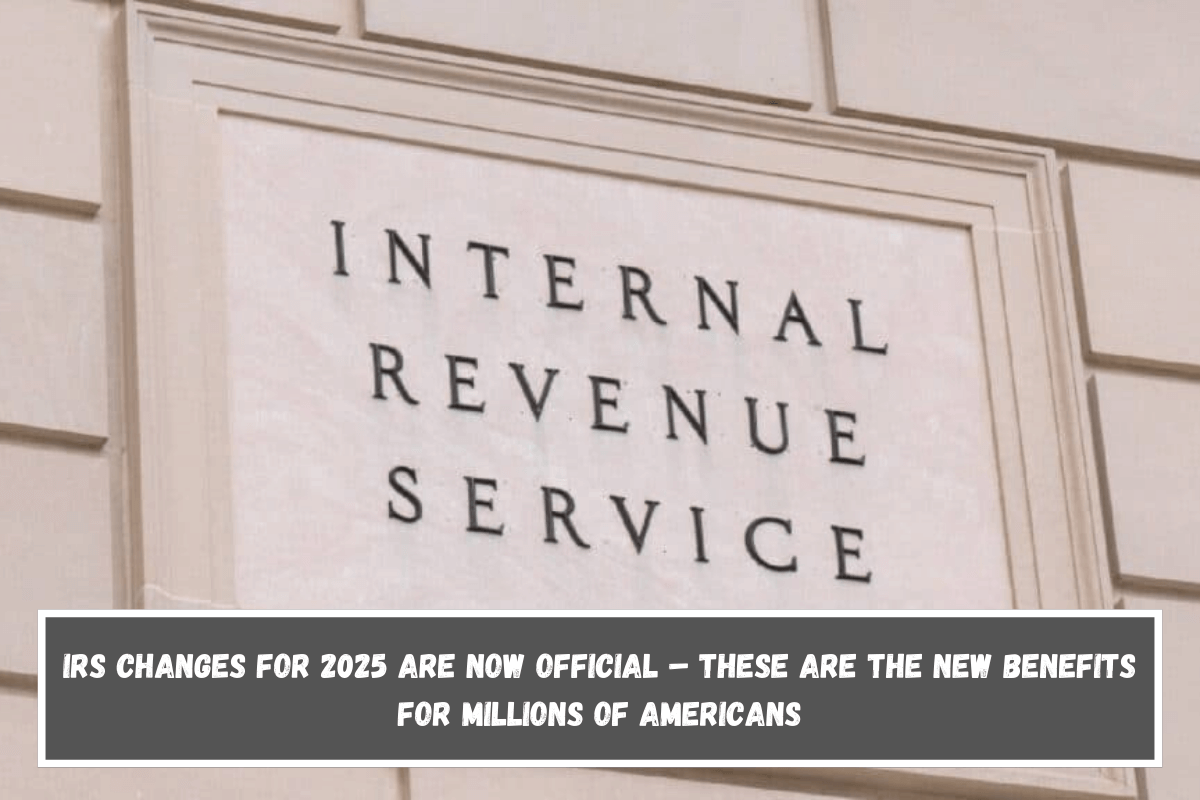The final tax rules for the 2025 tax year have been released by the Internal Revenue Service (IRS). Many Americans will be happy with some of the changes. People don’t like to talk about taxes, but it’s important to stay informed and involved because we all have to pay them in some way. Not knowing about taxes is not bliss if you end up with a huge bill that you could have avoided with a little care.
IRS changes in deductions for 2025
People in the U.S. will be glad to hear that the standard deduction amount has changed. People who make money don’t have to pay taxes on all of it. Their taxable income is equal to their total income minus the allowed deductions. This is the amount of tax they have to pay.
These tax breaks can be standard or itemized, and each has its own pros and cons. This is what the IRS says:
There is a flat amount that you can deduct if you are single, married filing separately, married filing jointly, head of household, or a qualifying surviving spouse. People who are blind or aged 65 or older may be able to get an extra tax break.
The best time to use itemized deductions is “if the total amount of your allowable itemized deductions is greater than your standard deduction or if you have to use itemized deductions because you can’t use the standard deduction.” You might also want to list your deductions separately if your standard deduction is capped because someone else claims you as a dependent.
You can deduct certain amounts, up to a certain amount of money, for things like state and local income or sales taxes, real estate taxes, personal property taxes, mortgage interest, disaster losses, gifts to charities, medical and dental costs, and mortgage interest.
Most of the time, the IRS changes the standard deduction every year to account for inflation. However, the itemized deductions have not changed. Taxpayers can choose which one to file, but they will have to meet certain requirements no matter which one they pick.

You can’t take the standard deduction if any of the following are true, according to the IRS website:
- You are a married individual filing as married filing separately whose spouse itemizes deductions.
- You are an individual who files a tax return for a period of less than 12 months because of a change in your annual accounting period.
- You were a nonresident alien or a dual-status alien during the year. However, nonresident aliens who are married to a U.S. citizen or resident alien at the end of the year and who choose to be treated as U.S. residents for tax purposes can take the standard deduction.
- You are filing as an estate or trust, common trust fund, or partnership.
People in these groups must file deductions with specific items.
That being said, what changes have been made to standard deductions? People who are single or married but file their taxes separately will be able to get a $15,000 standard deduction in 2025. This is a $400 increase in the benefit from the previous year.
The amount goes up to $30,000 for married couples filing jointly, which is $800 more than last year. The amount goes up to $22,500 for heads of household, which is $600 more than last year.
Another important change is to the Alternative Minimum Tax Exemption Amounts. These affect taxpayers with high income and tax breaks that can lower their tax bill. Limiting these breaks helps make sure that these taxpayers pay at least a minimum amount of tax.
The exemption amount for single people will go up to $88,100 in 2025 ($68,650 for married people filing separately), but it will start to go down at $626,350. The exemption amount for married couples filing jointly will go up to $137,000 and start to go down after $1,252,700.
Read Also :- Mortgage rates rise in the US after the latest FED announcement – Here’s why











Leave a Reply